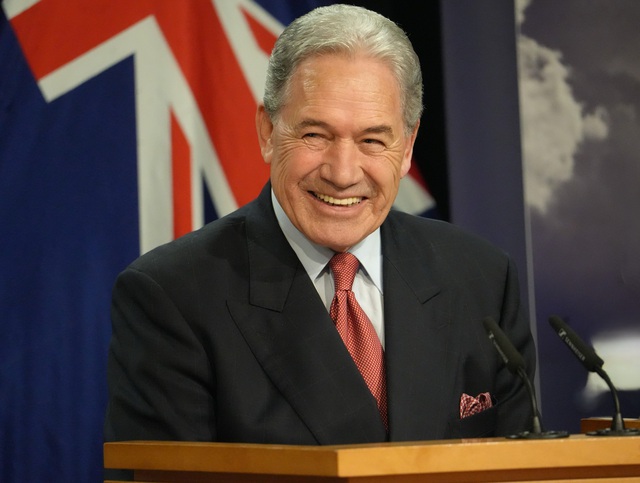Viet Nam–New Zealand relations: Charting a shared future
VGP - Minister of Foreign Affairs Winston Peters highlighted the importance of Viet Nam to New Zealand and outlined efforts to strengthen bilateral ties in his recent o-ped.

New Zealand Minister of Foreign Affairs Winston Peters
Peters concluded his official visit to Viet Nam from November 25-26.
In his o-ped, the minister noted that over the past 18 months, both countries had significantly increased engagement, culminating in the elevation of their relationship to a Comprehensive Strategic Partnership—a milestone that coincided with the 50th anniversary of diplomatic relations.
The Minister explained that this partnership represents a serious and practical commitment to advance cooperation. As part of the visit, both countries signed a joint Plan of Action to guide initiatives across various areas over the next five years.
He emphasized that Southeast Asia is central to New Zealand's future, especially as the global landscape changes with intensifying competition, shifting supply chains, and evolving rules governing trade, technology, and security. For a small country like New Zealand, he pointed out, rules are crucial; without them, decision-making would be dominated by larger nations.
The foreign policy reset announced 18 months ago signalled a more focused, faster-paced, and ambitious approach with key partners, and Viet Nam occupies a central place in this strategy.
The Plan of Action, according to Minister Peters, establishes pillars in resilience, science and technology, and defence and security—areas aimed at producing tangible outcomes.
He also noted that the two countries have set a US$3 billion two-way trade target by 2026, underscoring the economic potential of the partnership.
Minister Peters highlighted Viet Nam's strong economic growth, around six percent, and its clear path toward high-income status. He observed that Viet Nam's investments in digital infrastructure, advanced manufacturing, and the green economy align well with New Zealand's expertise in agri-food systems, renewable energy, and technology.
Exporters from New Zealand, he said, see opportunities in high-quality food and beverages, education, and services, while innovators find potential in digital trade and climate solutions. Both governments share a commitment to open markets and sustainable development, creating compelling economic opportunities.
Security, he added, is equally important. Minister Peters pointed out that transnational crime, cyber threats, and irregular migration affect both countries.
He cited New Zealand's cooperation with Southeast Asian partners, which led to the interception of 1.8 tonnes of illicit drugs last year, preventing US$1.4 billion in domestic harm.
The diplomat stressed that practical cooperation in defence and maritime security is critical, as regional stability underpins prosperity for both nations.
People-to-people links, he noted, form the foundation of the bilateral partnership. Scholarships have enabled Viet Nam's top students to study in New Zealand, while alumni networks, internships, and exchanges foster long-term connections.
Tourism, air connectivity, and the Southeast Asian diaspora in New Zealand serve as bridges of trust and understanding, sustaining the relationship beyond trade and formal agreements.
Minister Peters concluded that New Zealand's foreign policy reset aims to build partnerships that deliver real benefits for both nations.
He affirmed that New Zealand stands ready to support Viet Nam's ongoing momentum with ambition, reliability, and practical results, and that together both countries can chart a shared course toward prosperity, security, and resilience in a region of strategic importance./.

